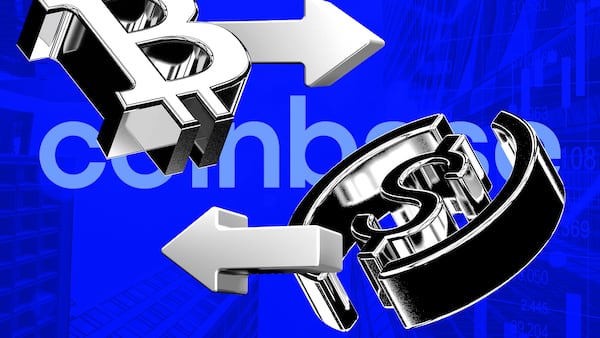- Coinbase beat analyst estimates in its latest earnings report.
- The firm's CFO said the replacement of a old SEC rule will increase competition.
- “We don’t see it as a zero-sum game,” CEO Brian Armstrong said.
Coinbase’s blowout fourth-quarter earnings soared past estimates as the election of Bitcoin backer Donald Trump spurred a crypto trading frenzy.
But the rising tide that helped the exchange’s revenue double versus last year is lifting other boats, too.
Coinbase Chief Financial Officer Alesia Haas said this will be especially felt in the area of custody.
“Having more people enable custody could provide more competition,” Haas said on a call with analysts after posting 2024 net income of $2.6 billion.
Late last month, the Securities and Exchange Commission rescinded SAB 121, a rule that enforced hefty accounting burdens on US firms looking to hold crypto on their books.
“[SAB 121] really kept banks out of crypto because the capital requirements of putting crypto on their balance sheet were really, really prohibitive.”
Now that the cumbersome rule has been replaced, “it will enable more and more banks and others” to enter the space.
Coinbase earnings per share beat expectations by 128%. The firm’s $2.3 billion in revenue also came in 23% above expectations.
In Coinbase’s earnings call, CEO Brian Armstrong said the firm hit an all-time high for both US crypto spot and global derivatives market share.
“It’s the dawn of a new era for crypto,” he said, adding that 2025 is looking positive as well.
The results followed trading app Robinhood, which said on Wednesday that it saw a 700% surge in crypto trading revenue.
Bitcoin soared some 84% over the three-month period ending in December, hitting an all-time high of $108,786 amid a broad crypto rally.
More competition
It’s not just the replacement of SAB 121 that could open up the playing field for Coinbase’s US-based competition.
Under the Biden administration, former SEC Chair Gary Gensler sued several crypto firms — including Coinbase — as he pursued a strategy of regulation through enforcement.
Gensler’s reign had a chilling effect on crypto firms looking to debut shares on public markets, said Chris Tyrer, head of strategy at Peter Thiel-backed crypto exchange Bullish.
This has helped listed companies such as Coinbase enjoy “an unfair advantage,” Tyrer said at a DL News event in London in November.
More broadly, the slew of crypto firm litigation from Gensler’s SEC will have made finance firms looking to dip their toes in crypto think twice.
Now, established financial players as well as crypto-native upstarts foresee an easier time.
Coinbase has brushed off concerns about rivals.
“We don’t see it as a zero-sum game,” Armstrong said on the call. “We’re trying to grow the size of the pie 100x for everyone.”
The firm says its future focus is working towards crypto perpetual futures markets in the US.
Perpetual futures allow traders to speculate on the price of an asset without having to own the asset itself. Unlike traditional futures contracts, perpetual futures don’t expire.
Outside the US, perpetual futures are a popular method for speculating on crypto prices. Rival crypto exchange Binance leads the market for perpetual futures, with markets for 439 assets which handled $53 billion in trades over the past 24 hours.
Coinbase couldn’t get approval to offer perpetual futures in the US under the Biden administration, according to Armstrong.
“I’m hopeful there’s a path to do that now in the US, which would bring a lot of the trading volume back onshore in this new regulatory regime,” he said.
Tim Craig is DL News’ Edinburgh-based DeFi Correspondent. Reach out with tips at tim@dlnews.com.









